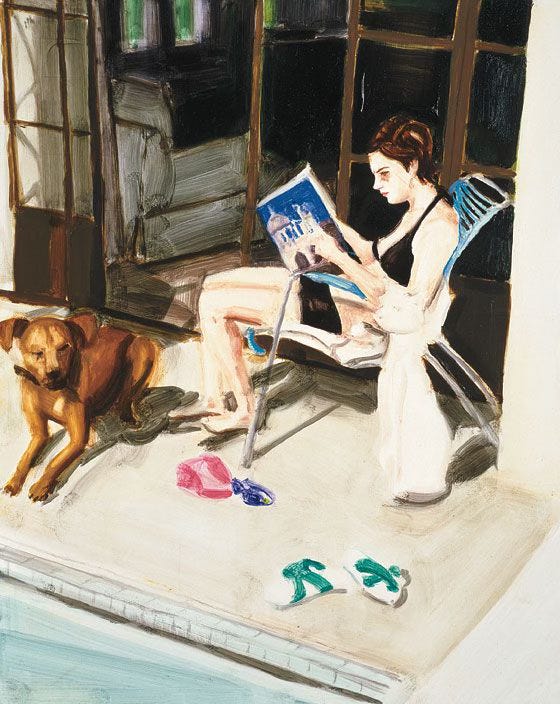I’m a ritualistic, superstitious reader: beginning a new book is a clean slate.
Typically I start reading a new book when there is sun. Morning sun is different than evening sun. If I begin a book in the morning, it becomes a “morning book”. An evening book too, is different than a night book. How the sun hits the page matters. The designations are important. The reading experience is influenced by a myriad of exterior forces. For me, the big one is light.
When is your magic hour?
Or rather—at what time of day do you enjoy reading most?
From A Horse at Night: On Writing by Amina Cain:
“I’ve never been able to understand people, like my husband, who don’t care about lighting, who are immune to harsh overhead lights. It’s especially awful in a bedroom, when you are trying to read at night. It isn’t conducive to winding down, and it flattens the imagination.”
In the morning, sunlight brightens the walls of my kitchen. This is my work space; there’s no room in the apartment for a proper desk. I savour the hours when the kitchen is lit up. A day is vast. Until noon. Then it’s over.1 There’s something encouraging, inspiring in the light. Ideas arrive. Work gets done. I like having flowers nearby—not always, but the space seems better with them: “A flowerless room,” said Vita Sackville-West, “is a soul-less room, to my thinking.”
Keep reading with a 7-day free trial
Subscribe to Girls on the Page to keep reading this post and get 7 days of free access to the full post archives.





